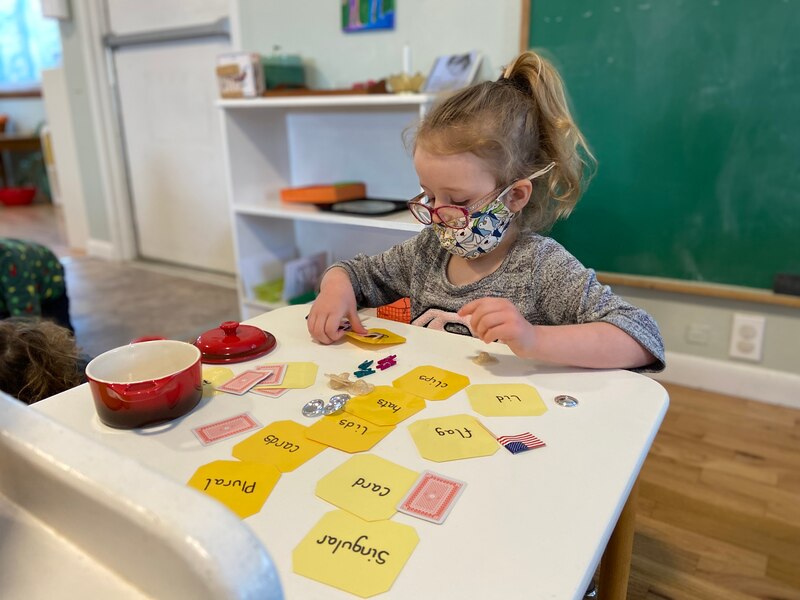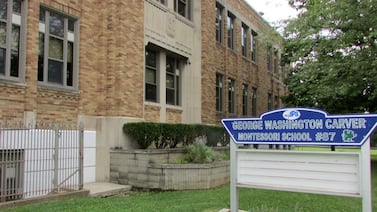With many Colorado child care providers struggling to keep their doors open amid the pandemic, leaders in one county have stepped up with an unusual offer of financial help.
The assistance comes as child care providers around the state and the country grapple with lost income due to declining enrollment and new costs to run their centers safely.
“I went to the county commissioner and said, ‘I’m really worried. We have get support to these child care businesses,” said Lisa Jansen Thompson, head of the Early Childhood Partnership of Adams County. “I’ve had people say, ‘I’ve been doing this for 40 years, but I can’t afford to do this anymore, I’m spending my own money’ — tearful conversation after tearful conversation.”
In response, Adams County allocated up to $1 million of federal CARES Act funding to support area child care providers. This amount of funding is not typical, as only 28% of early care and education funding comes from public sources during a typical year.
About 10% of Colorado child care centers and child care homes were still closed at the end of July because of the pandemic, according to a survey by the nonprofit Early Milestones Colorado that drew responses from 1,207 providers, around a quarter of the state’s total.
Data from the National Association for the Education of Young Children and Child Care Aware of America indicate higher closure rates nationally: 18% to 35% for centers and 9% to 21% for in-home care providers.
“I can’t believe they cared so much about us … just the recognition,” Thompson said. “I’ve heard of other councils getting money, but a million dollars? You’ve got to be kidding me.”

The money represents a recognition of the critical role child care centers play in allowing essential workers to do their jobs. Not all families are equipped to have one adult stay home with the children.
“The child care industry is an essential part of economic well-being, if we don’t have child care we can’t work,” Thompson said.
According to the U.S. Census Bureau and Federal Reserve, working single parents in states with early stay-at-home orders and school closures were 68.8% more likely to take leave from their jobs than were working parents in states where closures happened later.
Adams County officials said they recognize the important role child care providers play — and that there weren’t enough of them even before COVID hit. The money is an effort to protect these small businesses so that they’ll still be there when the pandemic is over and as the economy recovers.
Of more than 35,000 children under the age of 5 in Adams County, nearly 29,000 have parents and caregivers in the workforce, said Adams County Commissioner Emma Pinter.
“Licensed child care operators can only accommodate about one-third of these children due to limited licensing capacity — an issue we hope to address in the future,” she said. “Unfortunately, COVID has added additional stress to our already strained child care system.”
The county has dealt with a child care crisis long before COVID-19, which has only exacerbated the problem, but this time help arrived.
“When COVID hit, we put together a child care response team as soon as it started,” Thompson said. “Parents who were essential workers needed child care to go to work. We thought we were going to have to tackle it, but the state did it for us.”
That wasn’t the only need.
Thompson said the council quickly realized that child care providers were struggling significantly, and that enrollment had dropped about 66% for preschool in the county, noting that that also meant providers were losing 66% of their income.
So the council requested funding for providers that remained open to care for children of essential workers and other families in need.
One provider, Nicole Fox, who runs Eastlake Montessori School in Thornton, realized that in order to meet COVID safety requirements she would need to add to her staff. She applied for funds for her center.
In addition to offering tuition assistance, she has hired a “snack queen” responsible just for properly sanitizing and for distributing snacks.
With that extra worker, children used to serving themselves snacks can still eat whenever they’re hungry, Fox said.
She has reserved $3,600 for tuition assistance, which is $450 for a half day and $880 per month for a full day. Her facility does not accept state child care subsidies, which provide financial assistance to eligible low-income families.
Bernice M. Martinez of Nurtured Journey Preschool Inc., on the other hand, serves mostly families that qualify for state subsidies. Only three of the eight children in her care receive no tuition assistance.
Several parents have withdrawn their children from care for reasons related to COVID. Some got laid off. Others were essential workers, like nurses, who do not want to expose others due to their occupations.
“We are just trying to keep our head above water,” she said.
Martinez wants to use her money for a new fence in her outdoor play area, a new curriculum, tuition assistance for families and to help fund operations of her recent expansion to infant care. She expects to receive about $6,000.
Thompson said the council received more than 120 applications from child care programs looking for financial assistance.
“And we didn’t even come close to what they asked for,” she said. “They have lost hundreds of thousands of dollars.”







